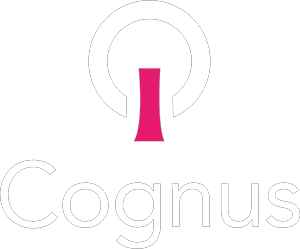Listening skills:
Attention and listening skills are fundamental for developing communication skills and learning in the classroom. It requires concentration, and the ability to ignore information that we don’t need. Listening involves hearing and remembering what is heard, and finding the information you need to understand (auditory processing).
It involves:
- Sitting appropriately still, looking and listening
- Looking, focusing and paying attention to tasks
- The ability to control your emotions in order to be calm and alert and ready to learn
- Paying attention to the person that is talking by looking, listening and taking turns
What can you do in the classroom or home to support?
- Use the names of children or young people to gain their attention
- Make sure you speak loudly enough to gain the attention of the child or young person
- Model good listening, and talk about how we show good listening
- Make sure that there are visual supports in order to help them to listen and learn such as using gestures (such as pointing or signs), pictures, photos or objects to help them understand the language you are using
- Keep your language short and simple
- Tell them how well they are doing to help them feel good about the task
- Ask the child or young person to repeat what they have heard in their own words
- Use calming activities such as Brain Gym to support their learning
- Lessons to include questions, repetition, and a model of how they should behave
- In lessons, use clear and simple language and visual supports to make sure they have the best chance of learning
- Ensure appropriate consideration has been given to the environment i.e. reduction of background noise, closing blinds etc.
- Provide time frames for how long you are expecting the child or young person to listen by providing clear start and end points to the task
Understanding Language (Receptive language skills)
Receptive language skills are the skills that we use to understand language and gain meaning from information (words and sentences). This is both in written and spoken language.
We need these skills to understand written and spoken language to help us to communicate well. They are needed to understand classroom routines, spoken information or basic instructions, e.g. “Put on your coat.”
If a child or young person has receptive language needs, they may present with difficulties in following basic instructions, understanding and learning new vocabulary words and concepts, and difficulties answering questions.
What can you do in the classroom or at home to support?
- Break language into smaller, more manageable chunks to help them understand
- Use simple language, and give them time to process the information
- Emphasise key words
- Give the child or young person one instruction at a time
- Support spoken language with gesture or signing
- Look at books together and talk about the pictures and the story, naming items throughout
- Join in with what they’re playing with, or comment on what they are doing or focussing on
- Check you have gained their full attention before giving them information
- Ask the child or young person what they have understood, e.g. “Dad said we need to….”?
-
- Cognus’ top tips for parents of children with DLD (Developmental Language Disorder) https://www.youtube.com/watch?v=2rIn32RI0FI
- Speech and Language UK (ICAN)
- Speech and Language UK top tips for teachers (Primary and secondary):
- Words for life (part of the National Literacy Trust):
- The Communication Trust:
- For support and information for families:
- For resources, for example – visual timetables, non-verbal communication cards, traffic light emotion cards and many more:
- Training and resources:
- Widget symbol resource packs, including some free downloads. Widget symbols are simple images used to support text:
- NAPLIC – a national organisation of teachers, speech and language therapists and other professionals involved in supporting children with speech language and communication needs (SLCN):
- Understanding quality first teaching:
*These are universal strategies to help children and young people with these common functional concerns. Should you require more specific support please seek appropriate professional advice.
For more information about local services please contact: cognus.therapies@cognus.org.uk
